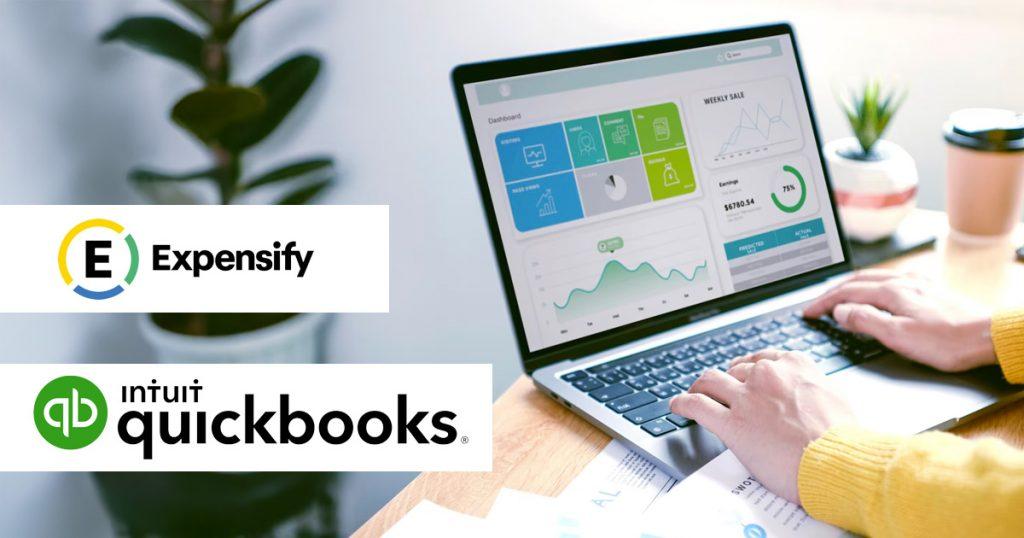Managing business expenses effectively is vital for smooth operations and financial clarity. Expense management tools like Expensify and QuickBooks have become essential for businesses seeking efficiency and precision. Each platform offers unique strengths tailored to specific needs, making it important to understand their differences to make an informed choice.
What Does Expense Management Mean?
Expense management refers to tracking, processing, and controlling employee and business expenditures. This includes everything from travel costs to office supplies. Effective systems ensure accurate record-keeping, streamline approvals, and minimize fraudulent claims, helping businesses stay compliant and on budget. Traditionally, expense management involved manual effort and paperwork, but modern tools like Expensify and QuickBooks automate these tasks, reducing errors and saving time.
Automation in expense management also plays a crucial role in auditing, offering clear records for tax compliance or financial reviews. By digitizing the process, businesses can monitor spending patterns and make data-driven decisions to optimize their financial operations.
How Can Expense Management Tools Help?
Expense management tools simplify the process of recording, categorizing, and analyzing expenses. They reduce manual errors and save time by automating tasks like receipt scanning and data entry. For instance, Expensify’s SmartScan automatically extracts key details from receipts, while QuickBooks syncs with bank accounts to provide real-time transaction data.
These tools also help businesses maintain transparency by creating clear workflows for approvals and reimbursements. With features like expense categorization and reporting dashboards, companies can easily track spending, identify overspending, and adjust budgets accordingly. In addition, they provide insights that aid in cost control, enabling smarter financial planning.
How to Choose the Right Expense Management Software
Selecting the right software depends on your company’s requirements and long-term goals. Here are the key factors to consider:
Detailed Analysis
Start by evaluating your business needs. If your primary focus is simplifying expense tracking, Expensify’s user-friendly tools might be enough. However, for businesses seeking broader financial management, QuickBooks offers additional features like invoicing, payroll, and advanced reporting.
Comprehensive Budget Assessment
Determine how much you can spend on software. Expensify is a cost-effective solution for small businesses or startups, while QuickBooks’ higher-priced plans cater to companies requiring more comprehensive accounting features. Evaluate the long-term return on investment for each option.
Scalability and Flexibility
As your business grows, your needs will evolve. QuickBooks is designed to handle increasing complexity, offering advanced modules for inventory, payroll, and more. Expensify, on the other hand, is ideal for businesses with straightforward expense management requirements that don’t change significantly over time.
Integrations
Both tools integrate with various platforms to enhance functionality. Expensify works seamlessly with QuickBooks for businesses using both solutions, while QuickBooks integrates with ERP systems, payment platforms, and other third-party apps. Choosing software with the right integrations ensures smooth operations and maximizes productivity.
Detailed Comparison: Expensify vs. QuickBooks
Here’s a closer look at how these two tools differ in features and capabilities:
Pricing
Expensify’s plans start at $10 per user/month, with free options for smaller teams using the Expensify Card. Its affordable pricing makes it accessible for startups and freelancers. QuickBooks, starting at $30 per month, provides more advanced features for businesses needing a full accounting suite. While QuickBooks is costlier, its comprehensive offerings may justify the price for medium to large organizations.
SWOT Analysis
- Expensify Strengths: Simplified expense tracking, mobile-first approach, and excellent receipt scanning.
- QuickBooks Strengths: Advanced accounting tools, robust reporting features, and broader integrations.
- Expensify Weaknesses: Limited capabilities beyond expense management.
- QuickBooks Weaknesses: Higher learning curve and increased costs for premium plans.
Integrations
Both platforms integrate well with financial and operational tools. QuickBooks has broader compatibility with ERP systems and project management apps, making it a better fit for businesses needing a multi-functional tool. Expensify’s integrations focus on syncing expense data with accounting software like QuickBooks itself.
Billable and Non-Billable Expenses
For businesses dealing with client projects, tracking billable and non-billable expenses is crucial. Expensify simplifies marking expenses for client reimbursement, while QuickBooks provides detailed reports to manage and track both types of expenses effectively, ensuring accurate billing.
Credit Card Feeds
Both tools automate importing credit card transactions, saving time and improving accuracy. Expensify’s SmartScan pairs receipts with transactions seamlessly, while QuickBooks offers reconciliation tools to ensure accounts are balanced. These features enhance financial clarity and reduce manual effort.
Which Software to Use?
Choosing between Expensify and QuickBooks depends on your specific business requirements. Expensify excels at simplifying expense tracking for smaller teams or businesses focused on managing employee expenses. QuickBooks, with its comprehensive accounting capabilities, is better suited for larger organizations needing a full financial management solution. Businesses requiring both functionalities can use Expensify in conjunction with QuickBooks for a seamless workflow.
Find the Expense Tool That Matches Your Needs
Picking the right expense management software can improve your business’s efficiency and financial clarity. Whether it’s Expensify’s simplicity or QuickBooks’ all-in-one solution, the right choice depends on your goals, budget, and operational needs. By evaluating these tools carefully, you can create a streamlined system for tracking and managing expenses, ensuring your business stays on top of its financial game.
